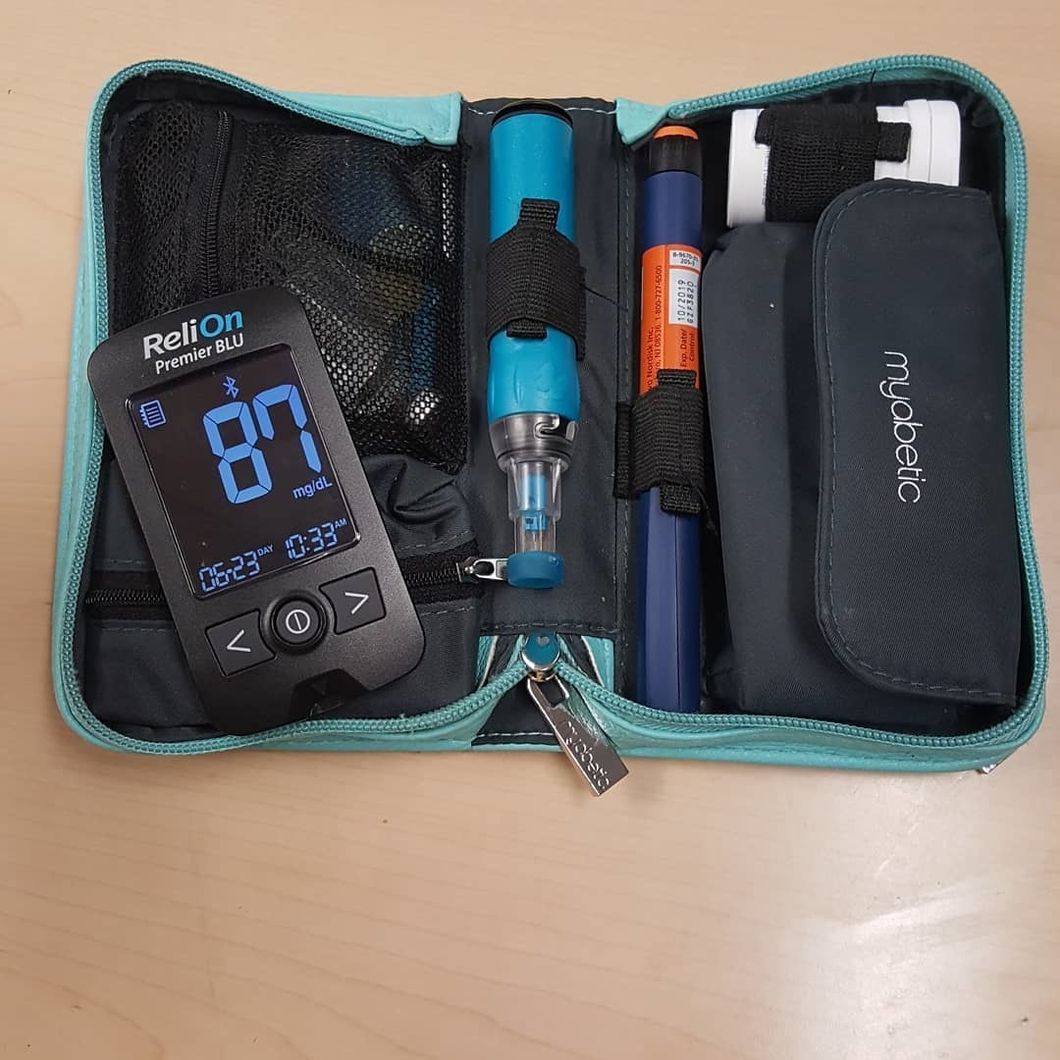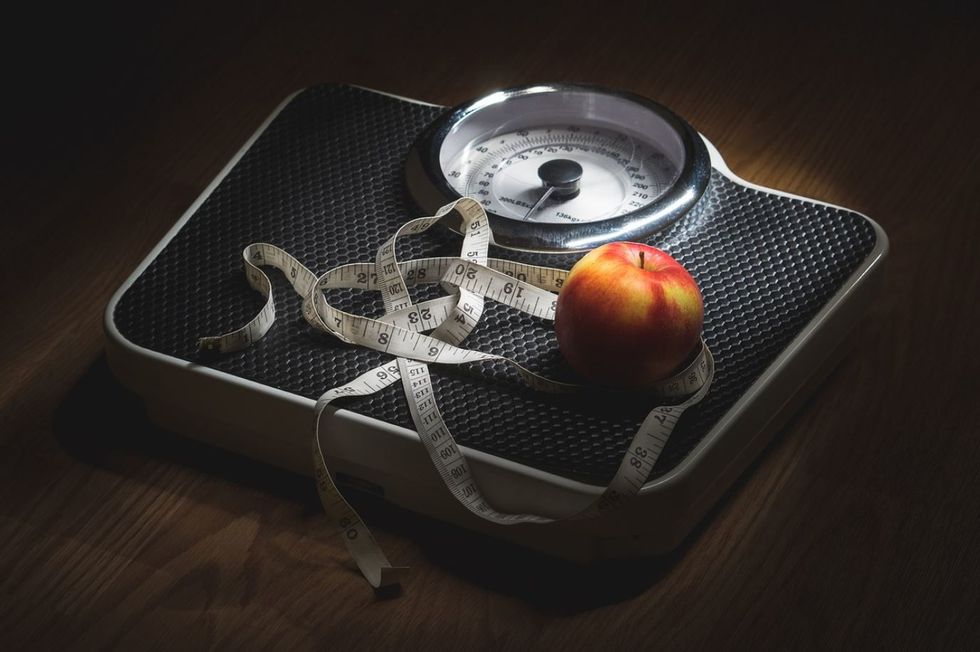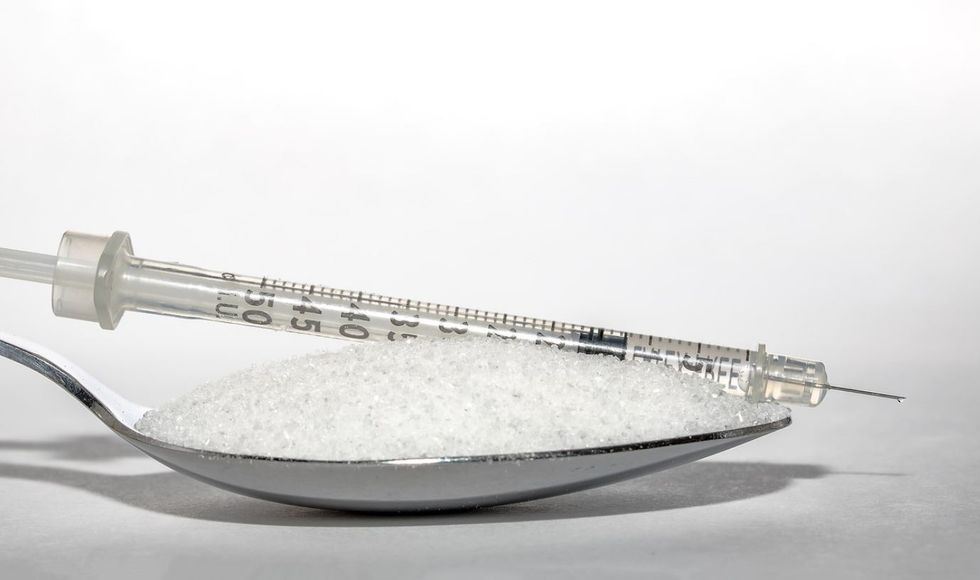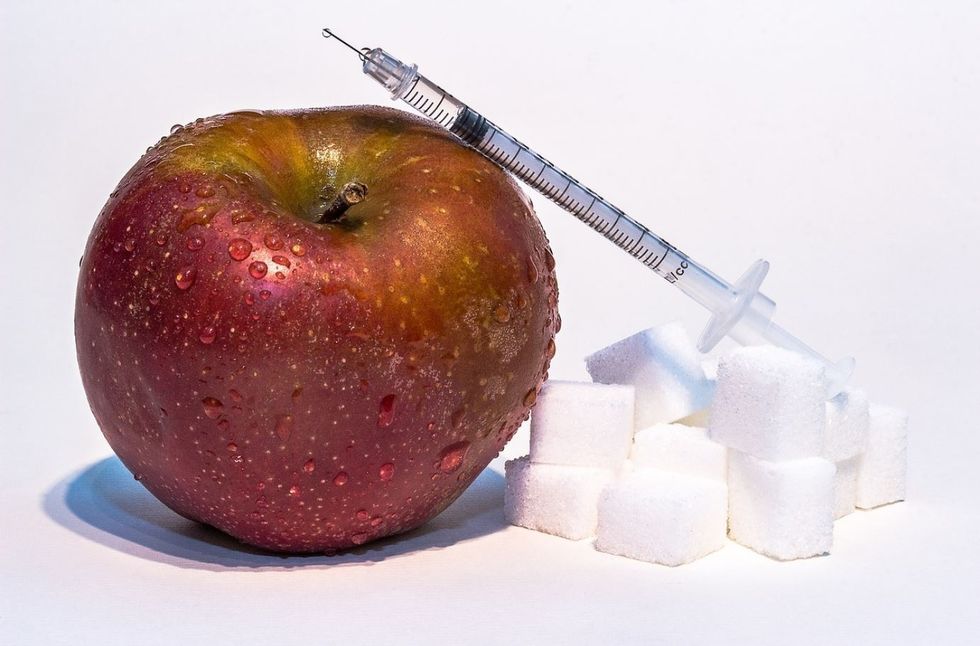10 Differences Between Type 1 And Type 2 Diabetes That You 100 Percent Need To Understand
There IS a difference.
I can easily say that I know at least one person with Type 2 diabetes, but I cannot say the same for Type 1 diabetes. This is because Type 1 Diabetes is actually rarer than Type 2 diabetes and more dangerous. There are a lot more differences between the two diagnoses as their short-term complications arise distinctively.
On the other hand, they both have similar long-term complications. If your loved one is diagnosed with diabetes, it is important to give them encouragement and support because if not carefully monitored the complications can become detrimental. The long-term complications are neuropathy (nerve damage), retinopathy (eye damage), and nephropathy (kidney damage).
The blood sugar dilemma can cause cardiovascular complications that may lead to heart attacks. In even more paramount scenarios, insufficient delivery to blood in the extremities combined with nerve damage and impaired wound healing capacity leads to lower-extremity amputations.
The following are 10 differences between Type 1 and Type 2 diabetes to help you understand how you can support others.
1. Type 2 diabetes is more common than Type 1 diabetes
Type 1 diabetes is genetically based to be absent of insulin-producing cells or to have the configuration to destroy their own insulin-producing cells.
2. You have the potential to cure Type 2 diabetes
When monitoring your sugar levels and your exercise regime at the earlier months of being diagnosed with Type 2 diabetes you can reestablish your metabolism and improve your overall health. This is only for the less extreme cases, which only become extreme if not taken care of.
3. Type 2 diabetes has a primary stage called pre-diabetic
Especially for those who have Type 2 diabetes in their family, early-onset can emerge thereby being classified as a pre-diabetic.
4. Type 2 diabetes is usually associated with other illnesses
People who experience obesity or being overweight to some scale end up developing Type 2 diabetes because of how poorly their metabolism has become.
5. Type 1 diabetes is more life-threatening
If not taken care of properly, Type 1 Diabetes can become deathly.
6. Type 2 Diabetes cause is conclusively unknown
The cause of Type 2 diabetes is never concrete because there are many factors that go into the decay of one's body. This can be excess weight, aging, lack of activity, or even lethal drugs.
7. Type 1 diabetes is diagnosed in young children or young adults
This is simply genetically based which means it will appear right away.
8. Type 2 diabetes is diagnosed primarily in adults
This is because the mature body no longer has those natural jolts of energy to grow from growth hormones and it is up to adults to ensure they keep their body energetic and safe. Also, adults are of age to drink and do what they want whether that's productive or destructive.
9. Type 1 diabetes treatment is insulin
Since their body is designed to either be absent of insulin-producing cells or destroy their insulin-producing cells the only treatment is insulin.
10. Type 2 diabetes treatment is blood sugar medication and a new lifestyle regime
Type 2 diabetes is where your blood sugar is too high and there isn't enough insulin to lower your blood sugar levels because the patient is either eating too much sugar or is not active enough to metabolize the sugar.
Overall there is a serious suggestion to change the entire lifestyle and start a healthy diet and exercise regime.


































Stop Saying, 'I Don’t Want To Get Diabetes,’ It's Rude And Ignorant To Those Who Are Type 1 Diabetic
Nobody wants to "get" diabetes, but some of us have no choice.
This statement implies that is is a choice to be diagnosed with diabetes as if it is some very controllable condition where I have the ability to decide whether it affects me or not. This is not true.
When I was three years old, I was diagnosed with type 1 diabetes also known as juvenile diabetes because it typically, but is not limited to, beginning in adolescence. Type 1 diabetes is a chronic condition where my pancreas no longer produces insulin. This is caused by my immune system attacking the pancreas, ultimately destroying the cells that create insulin. As of right now, there is no explanation known for what ultimately makes the immune system do this, and there is no cure for the autoimmune condition.
Thus, as a type 1 diabetic, I have no choice but to be entirely insulin dependent. Whenever I consume carbohydrates, I must administer insulin to my bloodstream just like how non-diabetic people having a fully functioning pancreas that releases the same hormone whenever they introduce carbohydrates to their digestive systems. The amount of insulin that I administer is based on the number of carbs that I consume; the carbs per insulin unit ratio varies based on the individual and also has the potential to change just as how the pancreas secrets insulin within an individual's body at rates that are unknown. Therefore, finding ways to treat diabetes can be difficult for there lacks a "one size fits all" template for what works best for each diabetic. (This is important to keep in mind for all health conditions: what works well for one person does not necessarily mean that it will work well for a different person.)
There are a lot of other factors that are imperative for my mindful attention in order to stay healthy with this chronic condition. Monitoring blood sugar levels, counting carbohydrates, gaining a true sense of body awareness, and attending doctors appointments are some examples of these other factors that are necessary to keep on top of while living with type 1 diabetes. As you can tell, this chronic condition can easily become overwhelming.
Did I want to be diagnosed with type 1 diabetes? No.
Did I have a choice as to whether I was diagnosed with type 1 diabetes? No.
Do you have the ability to control what statements you make when speaking in public? Yes, you most certainly do.
I urge people to resist from saying the phrase, "I don't want to get diabetes" when offered dessert or saying something similar when asked why they are cutting back on how much sugar they include in their diet. Perhaps these comments are in reference to "getting" type 2 diabetes also known as adult-onset diabetes. This condition is different from type 1 diabetes in the sense that the pancreas does not produce enough insulin or the body has developed a resistance to the insulin that is produced; the body does not use insulin efficiently. Another difference is that type 2 diabetes can be influenced by the risk factors of obesity and family history. Finally, type 2 diabetes can also be reversed; this means that through lifestyle choices such as diet and exercise, the effects of type 2 diabetes can be alleviated because the pancreas still does make insulin for type 2 diabetics. This is not the case for type 1 diabetes, thus, these are two different conditions.
So let's say that the ignorant comment of "I don't want to get diabetes" is made in reference to type 2 diabetes. This is still an awful thing to say. Of course, nobody "wants to get" diabetes; why would they? However, even in cases of type 2 diabetes, there are factors that are still beyond the individual's personal control, and even after the diagnosis occurs, as I stated earlier, there are differences in how each individual responds to treatment options. What works for one may not work for another.
Unfortunately, I have been in the presence of people who have made comments within this subject matter. Being a type 1 diabetic myself, the situation is incredibly awkward. Whether the person who made the statement knows that there is a diabetic present in the room or not, they should not be speaking like this. Making this comment implies that there is a concrete choice as to whether an individual is diagnosed with diabetes, of any type, or not. Making this comment implies that you, the commentator, is above those of us who are already diabetic; you are looking down on us in a way because your comment insinuates that you would never want to endure the lifestyle of a diabetic. Making this comment implies that you, the commenter, have no idea what the differences between type 1 and type 2 diabetes are, or that there even are different types of diabetes and how to distinguish between the complications of each. Making this comment implies that you, the commenter, are extremely, unmistakenly, ignorant.
In the instances that I have heard this quick comment be made, some people present in the room knew that I was type 1 diabetic and some people did not. Nobody pointed me out or made sideways glances at me to notice my facial expression. I was not offended by the comment, nor was I embarrassed that I am type 1 diabetic while there is this person saying that they "don't want" what I have. I was, however, extremely disappointed in the comment. I was partly disappointed in the commenter for making such an ignorant statement (that I am sure was probably not meant to be harmful at all), but I was also majorly disappointed in society as a whole. Instances like this have made me realize that, collectively, society is also ignorant of the differences between types of diabetes. Generalizing this condition can result in the cultivation of uncomfortable situations and an inability to understand the complications of each type of this condition.
Finally, and most importantly, whenever I endure experiences such as the one described, I am refreshed of just how utterly important it is for all of us to choose our words wisely and precisely. Even if we do not intend to cause harm by our words, the possibility of that happening is always present. When people say "I don't want to get diabetes," I am not sure they realize just how terrible this statement sounds leaving their lips. In my mind, my first reaction is that I would never say anything like this, but then again, I have this reaction because I am type 1 diabetic. Similarly, would you ever make the statement "I don't want to get cancer" when offered a free session in a tanning bed or "I don't want to get liver damage" when offered a beer? No, because there are so many genetic and epigenetic factors that can contribute to cancer diagnoses and the same goes for liver failure.
It sounds absurd to even read those two examples. How can somebody solely correlate tanning beds with "getting" cancer and beer with "getting" liver damage when there is an abundance of other contributing factors as well as different types of levels of severity regarding these health issues? Well, I ask myself the same question regarding the statement of "I don't want to get diabetes" when somebody is offered something sweet. How can somebody solely correlate sugar with "getting" diabetes when there are so many other factors that are potentially involved? While it is possible that these pairs are related in terms of causation to some extent (tanning beds/cancer, beer/liver damage, sugar/diabetes) there are so many things that we do not know exactly and making generalized statements like my examples above prove to be inappropriate.
It sounds absurd because it is absurd.
Thus, let's all strive to create an environment where we do not make people feel ashamed or uncomfortable based on ignorant statements regarding health conditions that we may or may not know anything about. You never know what people are going through or how a genetic condition, health issue, or disease affects them. Furthermore, you never know what health experiences you will one day be exposed to, whether that condition will affect you personally or if it will affect a close family member or friend. Either way, it will change your perspective immensely.
I vow to always choose my words carefully and thoughtfully to ensure that I can clearly articulate a point with consideration for whoever is present in my audience; you should too.